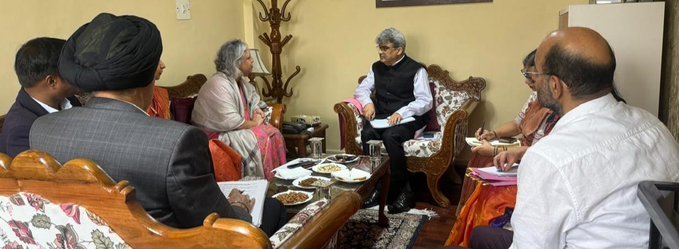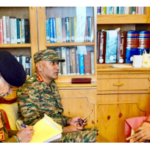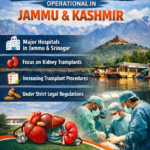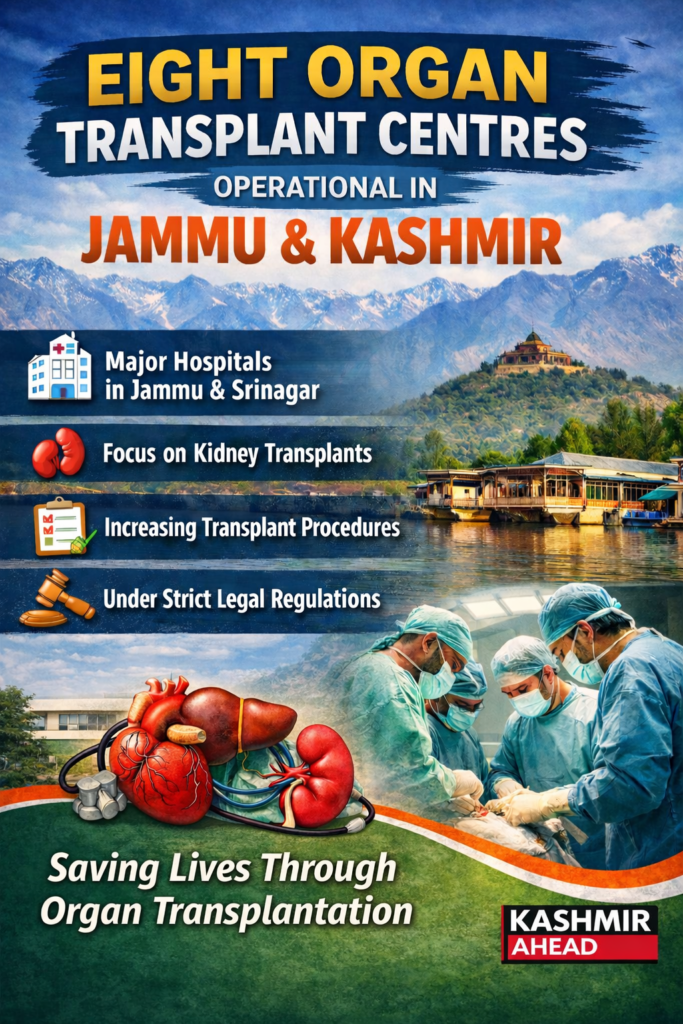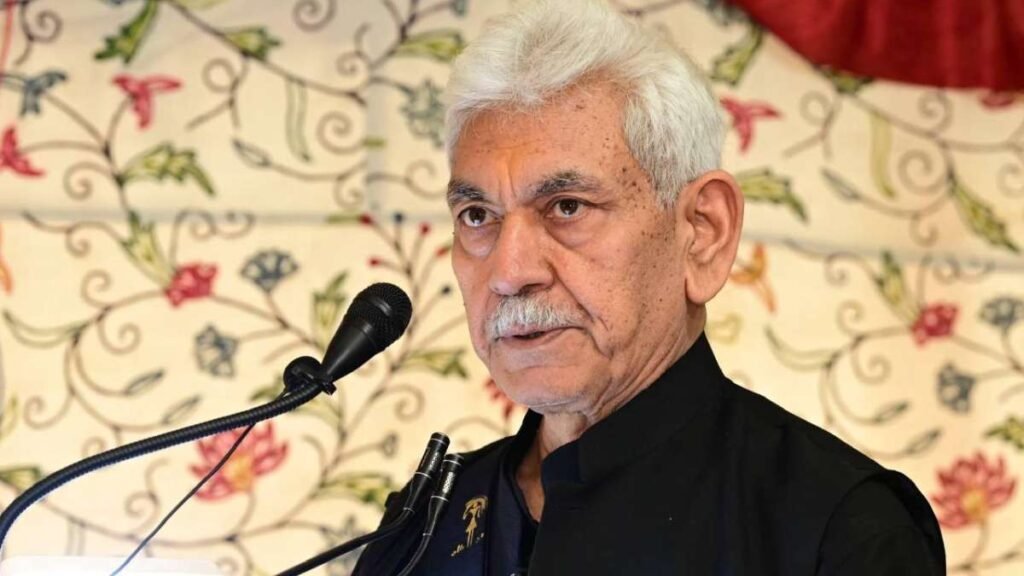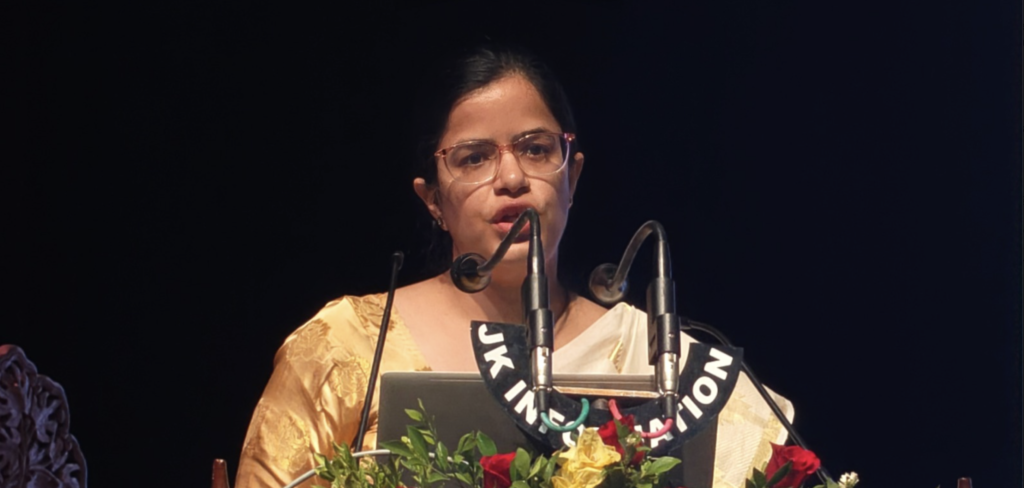Srinagar, September 9, 2025 – Chief Secretary (CS) Atal Dulloo today held a pivotal meeting with Secretary Textiles Neelam Shami Rao in Srinagar, focusing on strategies to enhance Jammu & Kashmir’s (J&K) handicrafts, handloom, and sericulture sectors. The discussions underscored collaborative efforts to integrate advanced training, incubation support, and digital traceability mechanisms, aiming to empower local artisans and boost the region’s traditional crafts on a global scale.The high-level meeting, convened at the Civil Secretariat, highlighted key initiatives including the expansion of National Institute of Fashion Technology (NIFT) courses tailored for J&K’s artisan community, the establishment of a Mission YUVA incubation centre to foster youth entrepreneurship in crafts, and the implementation of QR coding for product authentication. Dulloo emphasized the need for technology transfer from NIFT’s labs to grassroots levels, urging faster adoption to revive and promote indigenous crafts like Pashmina weaving, carpet making, and silk production.
“Fusion of craftsmanship and modern technology will open new markets and create sustainable livelihoods for our artisans,” Dulloo stated, calling for comprehensive frameworks involving NIFT and the Craft Development Institute (CDI) Srinagar.Neelam Shami Rao, Secretary in the Ministry of Textiles, Government of India, appreciated J&K’s rich heritage in handicrafts and handloom, which contribute significantly to the UT’s economy. She outlined central government support through schemes like the Credit Card Scheme for Artisans (CCSA), Karkhandar Scheme, and GI tagging initiatives, where QR codes are already being affixed to products for transparency, detailing artisan information, materials, and origin. Discussions also covered sericulture development, including improved mulberry cultivation, cocoon production, and value addition in silk processing to enhance exports. Rao assured enhanced funding and technical assistance for Mission YUVA, a youth empowerment program that has registered over 90,000 applications for nano-enterprises and MSMEs, with a focus on craft-based startups.The meeting aligns with recent government pushes to leverage J&K’s GI-tagged products, such as Kashmiri carpets, Pashmina shawls, and Basohli paintings, which now feature QR labels for quality assurance. Dulloo directed departments to accelerate infrastructure projects like Craft Villages, Common Facility Centres (CFCs), and Flatted Factories in districts including Srinagar, Budgam, and Samba. He also stressed capacity building through 634 training centres across the UT, integrating NIFT’s expertise in textile designing and paper mache to train master trainers who can further educate local weavers.
This interaction builds on Dulloo’s ongoing reviews of handicrafts and handloom departments, where he has advocated for digital platforms, global tie-ups, and timely credit flow to artisans. With J&K’s handicrafts sector employing over 3 lakh artisans and contributing to a multi-crore export market, the meeting is seen as a step towards making “Made in J&K” products a household name worldwide. Officials from Industries & Commerce, Handicrafts & Handloom, and Labour & Employment departments were present, ensuring coordinated implementation.The initiative is expected to not only preserve cultural heritage but also drive economic growth, with Mission YUVA targeting 1.37 lakh enterprises and 4.25 lakh jobs, many in the crafts domain. As Srinagar gears up for events like the Khelo India Water Sports Festival, such efforts will showcase J&K’s artisanal excellence to a global audience.

